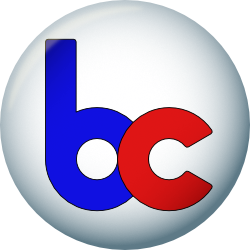For self-learners, one problem that we have to deal with is knowing what it is that we need to learn. How do we direct our own learning when we don’t have the knowledge that we need to even asses our own ability? We could simply try things randomly, of course, but that’s not the best way to become really good at anything. The best learning comes with a sense of direction.
A framework that can help illustrate this is the Four Stages of Competence. This is based on an idea that Martin M. Broadwell put forward as “the four levels of teaching” in 1969, so it’s not exactly new. It is a framework that combines two dimensions of 1) level of competence, and 2) level of awareness of that competence.
By name, these stages are:
- Unconscious Incompetence. We don’t know what we can’t do it.
- Conscious Incompetence. We know that we can’t do it.
- Conscious Competence. We can do it if we really focus.
- Unconscious Incompetence. We can do it effortlessly.

The traditional approach to learning would say to find a mentor or an established curriculum, and that the idea that one can be self-taught is delusional because of this inherent lack of self-awareness. But at the same time, there are notable exceptions from history who are known for their ability to teach themselves. They are almost always known for their discoveries, and because these discoveries were inherently ground-breaking, that’s the only way they could have learned. There were no mentors or established curriculum available. We don’t call Isaac Newton or Leonardo DaVinci delusional. We call them innovative. In current language we also call them autodidacts. They taught themselves what nobody else could teach them.
In the current “information age”, it may seem paradoxical that there would be anything in the world that we’d want to learn but which we can’t find by determined searching. It seems that everything knowable is just an internet search away. But at the same time, things are changing so quickly that skills that used to be valued have now been automated, and the skills necessary to navigate the rapidly changing world are so new that no mentor exists.
So in order to be self-directed in our learning, we need to begin in the first stage. We know that there are things we don’t know. But that doesn’t make us a blank slate, either. We have an idea of a general direction. The thing to do, then, is take a step in that direction while keeping in mind that in doing so we will realize some of the things that we need to know that we don’t yet know. (whew!) Take notes, and turn these frustrations into markers that point us in the right direction. Very quickly, we will move to the second stage of competence, and we will know what we need to work on.
If you find yourself stuck and not knowing where to start, then this is the approach you should take. Do something, but don’t “just do it”. Do it mindfully with awareness that you need to find what you’ll learn next along the way.
Another way of thinking about it is walking a hilly trail. You can’t map your steps now because the trail is on the other side of the hill. You have to march up the part you can see now in order to get to the peak and obtain the perspective which you will use to plot the next step.
We don’t need to be daunted when we don’t know where to start. We just need a little bit of faith that we will get the answers along the way. Or maybe we’ll at least get the questions, and knowing the questions is a great next step.
Try something new today, and let it tell you the next steps to take. Sometimes, that’s all we have.
